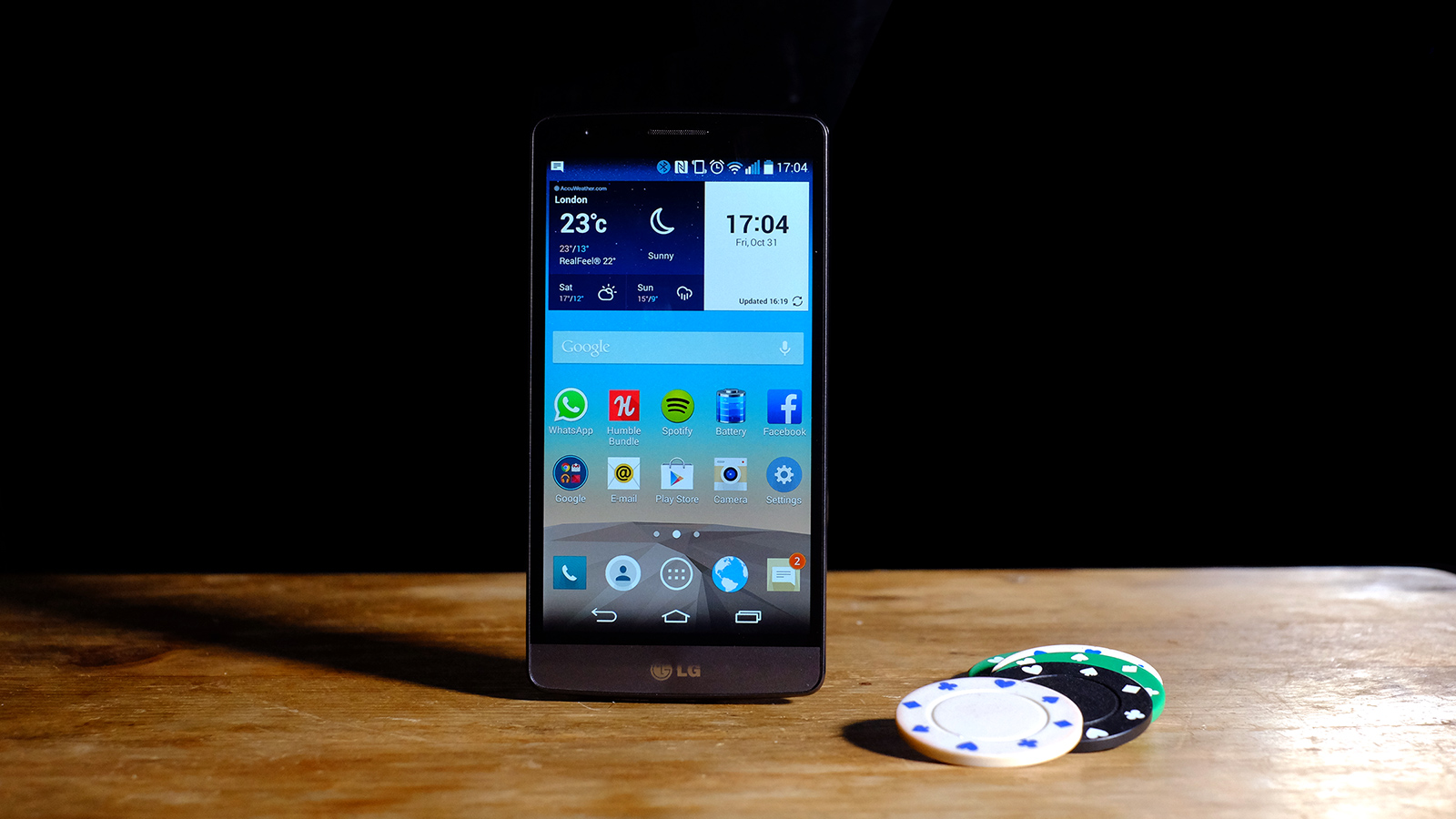Why you can trust TechRadar
A 'mini' screen
The LG G3 S has a 5-inch screen, a good 0.5 inches smaller than the LG G3. That's enough to mark it as an LG G3 Mini under another name.
Like other higher-end LG phones, it uses an IPS LCD screen. However, it's a 720p display rather than the 1080p kind you get in the LG G2 and G3.
Much like the Moto G 2014, the difference is noticeable in a screen of this size, and in this particular display I was slightly disappointed by quite how apparent the pixel structure is. It's a way off what you get in the G2 or the supremely pixel-rich G3.
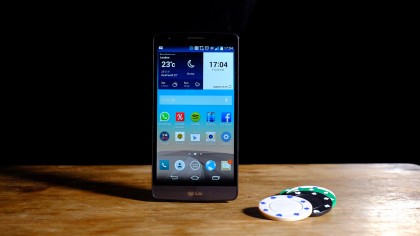
The most annoying – really unforgivable – part of the LG G3 S display is that it does not have an auto-brightness setting. I find this hard enough to stomach in £80 phones, let alone £240 ones. This means whenever you have to manually adjust the brightness to your liking.
It makes a real dent in how easy the phone is to use day-to-day, and leaving it out of a £200-plus phone is frankly ridiculous. Especially when LG has included a much less important IR transmitter in the LG G3 S. In short: what was it thinking?
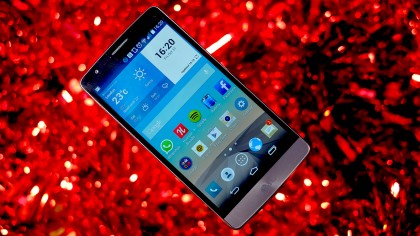
Other aspects of the screen are rather better. Colour saturation is perfectly fine, with accurate-enough colours offering a fairly natural tone. While black level is just the norm for an LCD - not perfect, not by a long shot - it only becomes noticeable in darkened rooms.
There was a little bit of backlight bleed in my review sample, but this is likely to vary between specific instances of this phone.
Sign up for breaking news, reviews, opinion, top tech deals, and more.
As this is an IPS screen, viewing angles are predictably good, if with shifting of colour temperature and reduced contrast depending on the angle.
Light weight frills
The LG G3 S shows some quite strange decisions in the features it does and doesn't offer. The most obvious is one this review has already discussed – there's an IR transmitter but no ambient light sensor.
I had wondered whether this was merely a software bug, but trying a third-party brightness manager, I was told it couldn't find the LG G3 S's light sensor. It really isn't there, apparently.
As with other low-end LG tablets and phones, light weight frills can at times seem to be given priority over the basics.
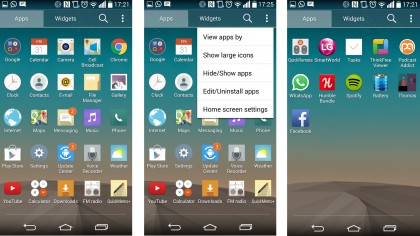
The 8GB storage looks very stingy at the price, and the processor is one used in several cheaper phones. It's the Snapdragon 400, a 1.2GHz quad-core chip seen in the Moto G 2014 and 2013 – phones that are £100 cheaper while nearly matching the LG G3 S spec-for-spec.
While the LG G3 S has enough power and storage to feel largely non-compromised in daily use, the many little cuts become an issue when you lay them against the price.
In place of truly top-notch value the LG G3 S offers a few extras you don't generally see in phones that try to offer as much phone for as little cash as possible. Some are in the hardware, others in the software. Let's start with one already mentioned: the IR transmitter.
This is the little black spot seen next to the LG G3 S's noise cancellation mic. It fires out signals of the same type as your TV's remote control, letting the phone take on the role of multiple remotes. There's an app to let you set this up pre-installed, too, called QuickRemote.
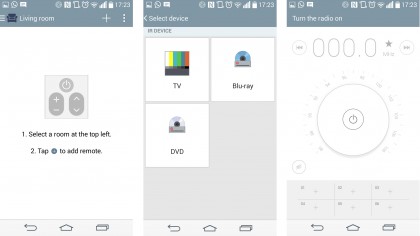
More importantly, the LG G3 S offers 4G mobile internet and it covers all the bands popular in the UK – 800MHz, 1800MHz and 2600MHz. LG is also producing a number of different variants across the globe to cater for other markets.
The key benefit of 4G is pretty obvious: it's faster than 3G, but can also get you better signal due to the way it's dispersed from signal towers.
Actual 4G speeds you'll get depend largely on your carrier rather than the phone, but if you're yet to make the leap, you can expect fewer buffering screens on Netflix, faster web page loads and all-round swifter downloads with the LG G3 S.
The golden rule at present, though, is to make sure you actually get the data allowance to make the most of it.
Current page: Key features
Prev Page Introduction and design Next Page Interface, performance and battery life
Andrew is a freelance journalist and has been writing and editing for some of the UK's top tech and lifestyle publications including TrustedReviews, Stuff, T3, TechRadar, Lifehacker and others.
